With the diverse range of communication tools available in 2024, finding a Skype alternative for your video and voice calling needs has become a more nuanced decision.
You have a lot to consider, from the feature sets to the platform’s reliability and, most importantly, the ease of use that aligns with your daily communication demands.
Whether you’re coordinating with a remote team, catching up with family, or networking with peers, the variety of platforms at your fingertips means you can select one that best fits your specific situation.
WhatsApp, Zoom, and Microsoft Teams have emerged as popular choices, each offering a unique blend of features that cater to both personal and professional communication.
Popular Skype Alternatives
In your search for communication tools, you’ll find several robust alternatives to Skype that cater to various needs, whether it’s for personal chats or professional meetings.
1. Zoom
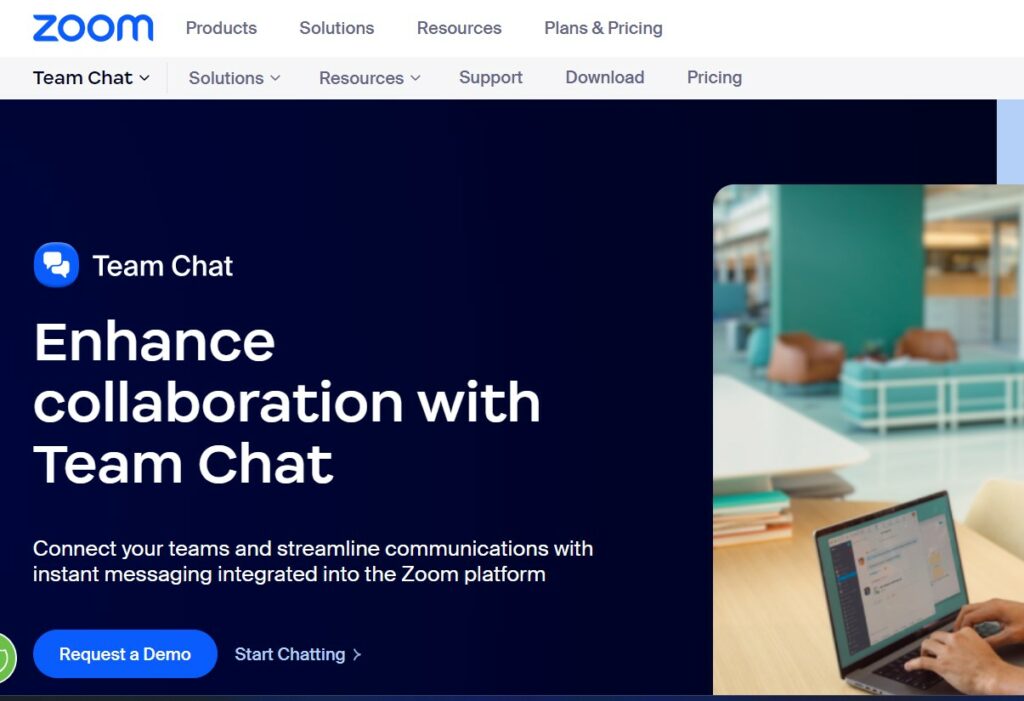
Zoom has risen quickly as a go-to video conferencing tool.
It’s versatile, supporting both audio and video calls, along with features that accommodate one-on-one sessions or larger group meetings.
The interface is user-friendly, and it’s accessible across a range of devices.
2. Google Meet
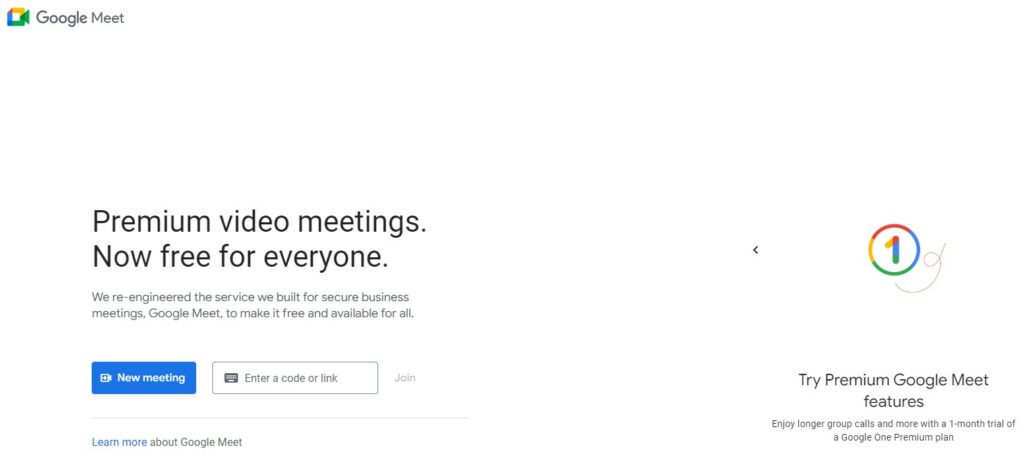
Google Meet integrates seamlessly with other Google services, offering high-quality video conferencing.
It stands out for its crisp audio and clear video without much lag. It’s a reliable option, particularly if you’re already within the Google ecosystem.
3. Microsoft Teams
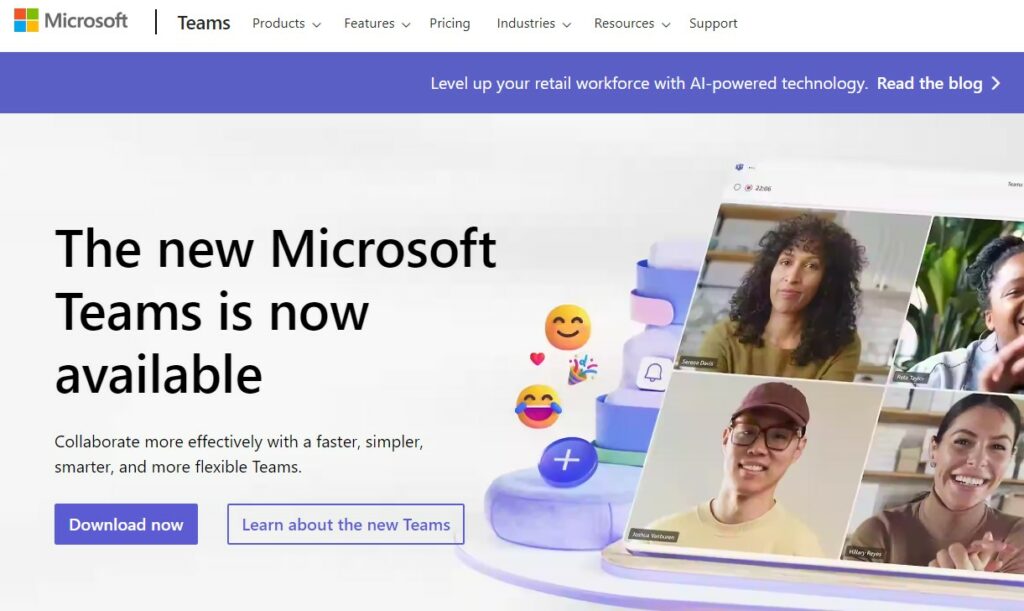
Microsoft Teams is more than a video calling application; it’s a collaboration hub that’s part of the Office 365 suite.
It offers chat, video calls, and integrates with other Microsoft applications, making it a solid choice for workplace communication and project management.
4. Discord
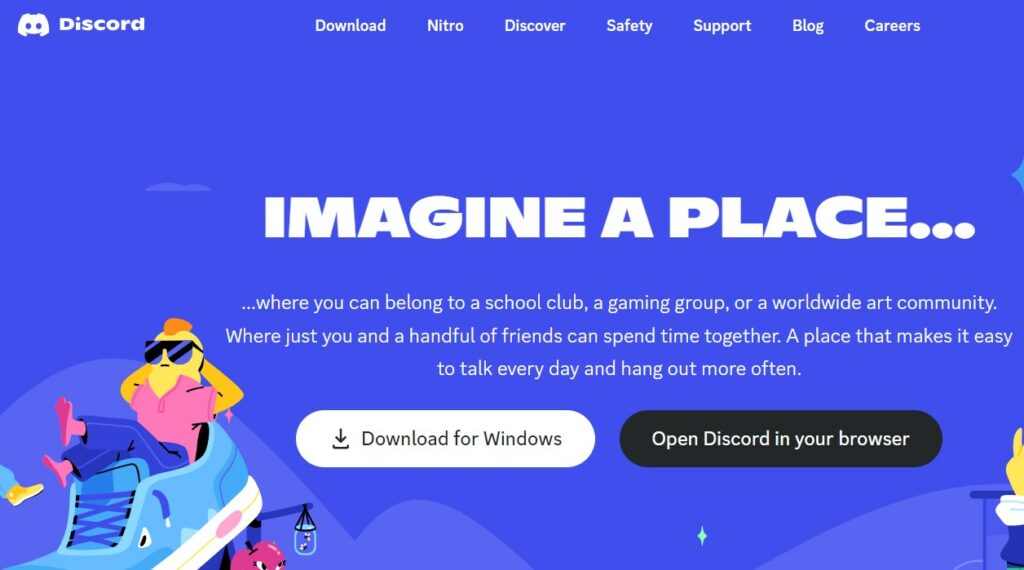
With a focus on community and gaming, Discord offers a unique mix of voice, video, and text communication.
It’s tailored for groups and provides a relaxed environment with servers and channels that can be customized according to your interests or needs.
5. WhatsApp
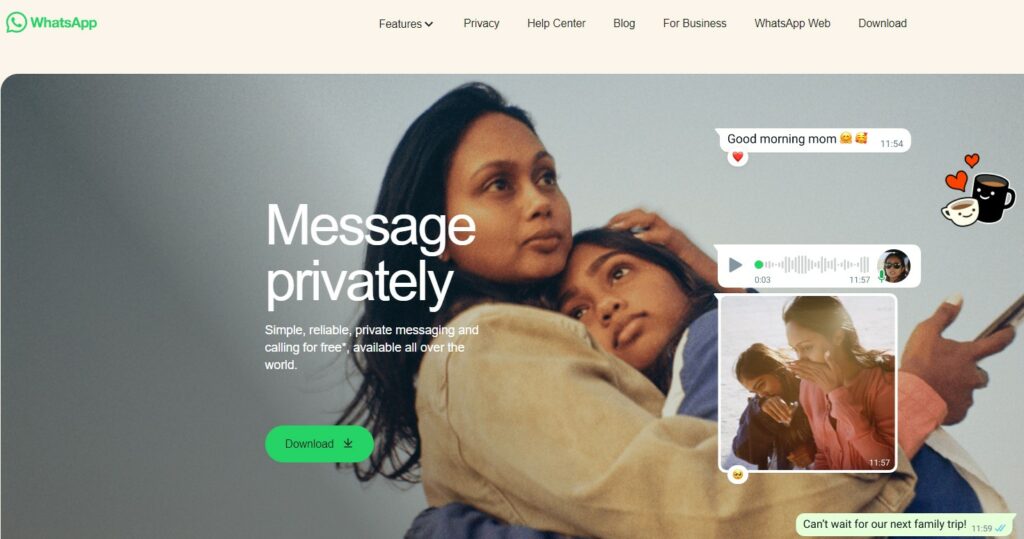
WhatsApp is predominantly known for its robust instant messaging feature, but it also provides voice and video calls.
It’s a widely used platform with end-to-end encryption, ensuring your conversations remain private.
Criteria for Choosing an Alternative
Splitting the text into at most two sentences per paragraph will help make it easier to read.
Selecting the right Skype alternative for your needs involves evaluating several critical factors.
These criteria will help you ensure you’re making a well-informed decision that enhances your communication and collaboration.
Security
Your privacy and data security are paramount.
An ideal alternative should offer end-to-end encryption and comply with global privacy standards to protect your conversations.
Look for features like two-factor authentication to safeguard your account.
User-Friendliness
The service must be intuitive and easy to navigate.
You want a platform that enables you to start a call or meeting without unnecessary steps.
A simple interface and availability on various devices make a solution user-friendly.
Integration Capabilities
An efficient tool should seamlessly integrate with your existing work apps.
Compatibility with services like Google Apps or Microsoft Office ensures a smooth workflow and keeps all your tools interconnected.
Cost
Consider both free and paid options.
While some services offer free basic features, premium features might require a subscription.
Evaluate the cost-effectiveness by comparing the features you get against the price you pay.
Industry-Specific Solutions
Splitting the text into at most two sentences per paragraph will help make it easier to read.
Choosing the right alternative to Skype depends on your industry’s unique requirements.
The following options cater specifically to the needs of different sectors, ensuring that you stay connected with features that matter most to your line of work.
Healthcare
In the healthcare industry, HIPAA-compliant video conferencing tools are imperative to protect patient privacy and security.
Platforms like Zoom for Healthcare and Doxy.me are designed to offer secure video calls, ensuring that patient-provider communications are safe and confidential.
Education
For education, solutions such as Google Meet and Cisco Webex Education Connector afford flexibility.
These platforms integrate with existing educational software, offering features like large virtual classrooms, breakout sessions, and interactive whiteboards, all enhancing the remote learning experience.
Technology
The technology sector frequently requires robust and versatile communication tools.
Platforms such as Microsoft Teams support seamless integration with other software ecosystems used by tech companies, offering features like advanced file sharing, project tracking, and collaborative coding spaces.
Customer Service
In customer service, effective communication tools like Zendesk or Freshdesk can integrate with call center software to facilitate smooth interactions with clients.
They provide features like ticketing systems, automated workflows, and extensive reporting to streamline support tasks and enhance customer satisfaction.
Key Takeaways
When looking for Skype alternatives, you have a variety of options.
Each service offers unique features, and the best one for you depends on your individual needs.
- Zoom: Gained popularity for its flexibility.
- It’s user-friendly and supports both audio and video calls for individuals or groups.
- However, it does not offer advanced features for free, and some users have privacy concerns.
- Google Meet: Especially effective when integrated with Google apps.
- Known for reliable video quality and crisp audio with minimal lag.
- Other Factors:
- Examine the compatibility with your devices.
- Consider the cost; some platforms offer free basic services with paid advanced features.
- Evaluate any privacy concerns; some platforms may have better security features than others.
- Ease of use can vary between platforms, affecting your overall experience.

